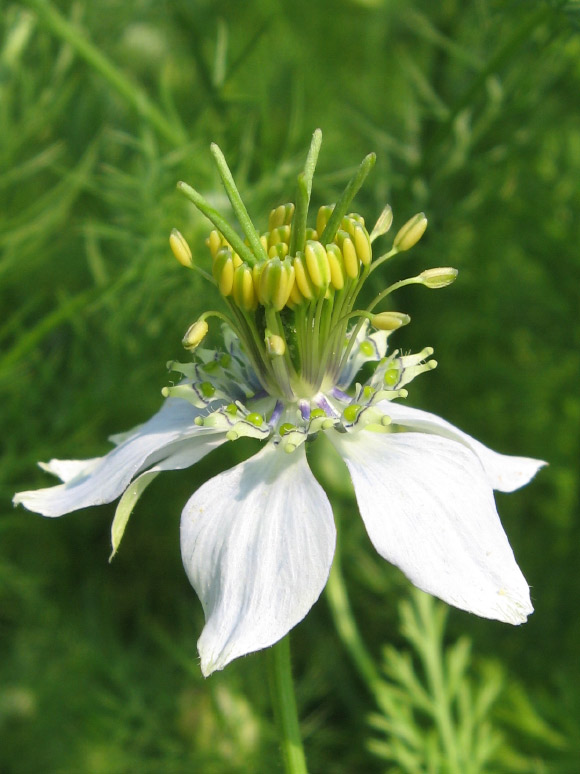Black cumin seeds have traditionally been valued for their medicinal properties. In a new study, researchers explored its potential in addressing obesity-related conditions.

Ahmed et al. suggest that black cumin seed (Nigella sativa) may serve as a promising natural agent in obesity-related conditions. Image credit: Andre Holz / CC BY-SA 3.0.
Nigella sativa, or black cumin, is a flowering plant from the Ranunculaceae family long used in traditional medicine across South Asia, North Africa, and the Mediterranean.
Its therapeutic properties are recognized in ancient systems like Unani, Ayurveda, and Tibb.
Black cumin seed and its oil are rich in bioactive compounds such as alkaloids, flavonoids, and essential oils, contributing to their broad pharmacological potential.
Their diverse physicochemical properties make them valuable in both food and medicine.
Cell culture and animal studies have demonstrated the therapeutic effects of black cumin and its active constituent, thymoquinone, including antimicrobial, anti-inflammatory, antioxidant, antidiabetic, antihypertensive, antitumor, immunomodulatory, and anti-obesity activities.
To investigate these effects, Dr. Akiko Kojima-Yuasa of Osaka Metropolitan University and her colleagues used cellular experiments and human clinical trials.
In the human clinical trial, participants who consumed 5 g of black cumin seed powder daily (roughly a tablespoon) for 8 weeks showed significant reductions in blood triglycerides, LDL (‘bad’) cholesterol, and total cholesterol levels. In addition, HDL (‘good’) cholesterol levels increased.
Improvements in blood lipid profiles like these are associated with a lower risk of heart problems and premature death.
The scientists also performed cellular experiments to understand the processes involved.
They found that black cumin seed extract inhibited adipogenesis — the formation and maturation of fat cells — by blocking both fat droplet accumulation and the differentiation process.
“This study strongly suggests that black cumin seeds are useful as a functional food for preventing obesity and lifestyle-related diseases,” Dr. Kojima-Yuasa said.
“It was so gratifying to see black cumin comprehensively demonstrate actual, demonstrable blood lipid-lowering effects in a human trial.”
“We hope to perform longer-term and larger-scale clinical trials to investigate the effects of black cumin on metabolism.”
“We are particularly interested in investigating its effects on insulin resistance in diabetes and inflammatory markers.”
The study was published in the journal Food Science & Nutrition.
_____
Shamima Ahmed et al. 2025. Black Cumin Seed (Nigella sativa) Confers Anti-Adipogenic Effects in 3T3-L1 Cellular Model and Lipid-Lowering Properties in Human Subjects. Food Science & Nutrition 13 (9): e70888; doi: 10.1002/fsn3.70888







